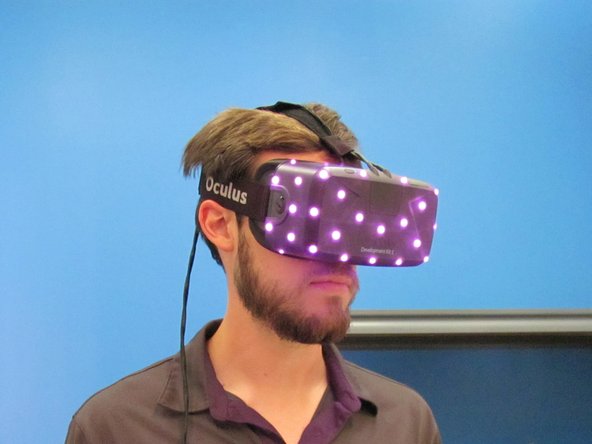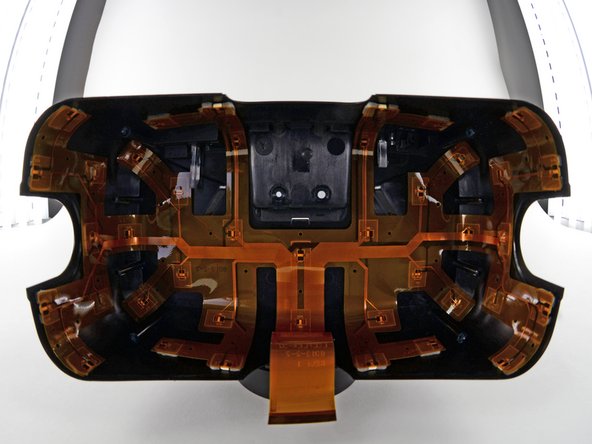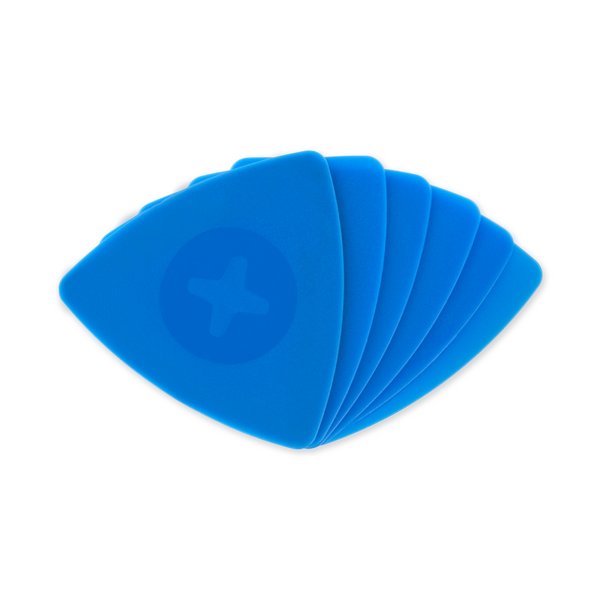When a device like the Oculus Rift DK2 comes through our doors, the folks at iFixit dance around like giddy schoolgirls and schoolboys. We literally have to fight them—sometimes to the death—to keep their grubby hands off it long enough to complete the teardown.

Oculus Rift Development Kit 2 Teardown
Oculus VR took the world by surprise last year…
So here we are. The DK2’s excellent 9 out of 10 repairability score meant we didn’t break the device and incite a riot. But truly, we’re more excited about all the fun stuff we found inside, including the 40 infrared LEDs you see in the image above.
Read on, teardown traveler, or treat yourself to a video review.
• The first thing we notice is that the DK2 shows some noticeable streamlining in size and shape when compared to the DK1. And then without warning, the forefather of VR headsets crashes the party—the Virtual Boy. Here’s a size comparison of the three units.
• Keeping up with the Oculus news recently, we figured there might be something lurking within the HDMI cable, just like with Apple’s Thunderbolt cable from awhile back. We find we were right—a Spectra7 VR7100 processor is buried under what seems to be a thick encasing of glue. According to their product brief, the little doohickey “reduces size and weight of HDMI copper interconnects…” Well, now we know why the cables got so much thinner when compared to the DK1.
• Looks like we found the many sources of those many, many IR LEDs. There are forty of them, artfully connected via a ribbon cable probably designed by magical space elves.

• Here at iFixit, we are unabashed lovers of screws—they epitomize everything that’s good about repair. Which is probably why Oculus VR sneaked this maddeningly uncooperative non-screw in here, just to mess with us. Actually, this could just be a minor manufacturing snafu. Apart from the lack of threads, this little guy is identical to two other (perfectly ordinary) Phillips screws nearby.
• The display is—drumroll please—literally the front panel of a Samsung Galaxy Note 3. This seems to make economical sense, since Oculus is working to ship something like 45,000 DK2s—a goodly number for a mid-development prototype, but certainly not enough to warrant a fully custom display. It looks like Oculus is already taking advantage of their partnership with Samsung.
• We take a closer look at the 5.7″ Super AMOLED display panel and find that Oculus even left the Synaptics S5050A touchscreen controller intact. Maybe they’re planning on releasing an eyelash touchscreen controller add-on later.
• Oculus claims that the DK2 display is a low-persistence OLED screen capable of a 75 Hz refresh rate. This means that Oculus is overclocking the Note 3 display panel from its stock 60 Hz, which results in smoother motion.
• The DK2 includes a brand-spanking-new positional tracking unit. Essentially, it’s a custom-made external IR camera, specially designed to work with the new Development Kit. Don’t worry, we took that apart as well.
• We manage to remove the positional camera’s motherboard and lens assembly with ease. We quickly dispense with two more screws, and then pop the lens assembly off the motherboard. After playing around with the positional camera lens, we conclude that it’s a wide angle lens. This allows the positional camera to see more IR LEDs at once, expanding its tracking abilities.
• There are several ICs on the positional camera motherboard:
- Microchip Technology 4AI28I 40615P
- SIWARD 12.0 4C
- S033 HVG 107Y
- Etron Technology eSP570 webcam controller
• These are the ICs that make virtual reality a possibility (in the main unit):
- Toshiba 358779XBG HDMI Interface Bridge
- STMicroelectronics STP16CPC26 Low Voltage 16-Bit Constant Current LED Sink Driver
- STMicroelectronics STM32L100RB Ultra-low-power 32-bit Value Line ARM Cortex-M3 MCU with 128 Kbytes Flash, 32 MHz CPU, LCD, USB
- Cypress Semiconductor CY7C65632 Very Low Power USB 2.0 Hub Controller
- Invensense MP65 Six-Axis (Gyro + Accelerometer) MEMS MotionTracking
- Texas Instruments SEM TI 39 CF5I Single Schmitt-Trigger Inverter






0 comentários